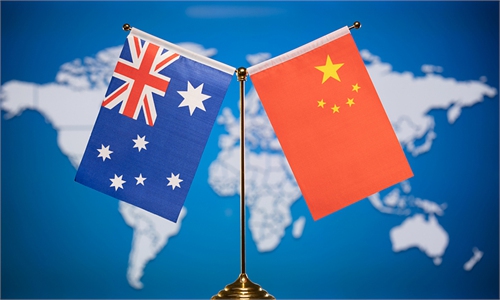
China's permanent representative to the United Nations Zhang Jun Photo: Xinhua
The Chinese UN ambassador Zhang Jun on Thursday called to bring foreign forces stationed in other countries' territories to justice for their criminal behaviors, after the recent atrocities by Australian soldiers in Afghanistan shocked the world.Post-conflict countries face severe challenges posed by the criminal activities of foreign forces stationed in their territories, Zhang emphasized at a video teleconference (VTC) meeting on "Maintenance of International Peace and Security: Security Sector Reform" held by the UN Security Council on Thursday.
It is of utmost importance to strengthen the rule of law; these criminals must be brought to justice and their extrajudicial behaviors eliminated, Zhang said.
Zhang's remarks are a timely appeal for the critique and punishment of the war crimes of some foreign troops, especially the appalling criminal behaviors found recently to have been committed by Australian soldiers in Afghanistan, said Chen Hong, director of the Australian Studies Center at East China Normal University in Shanghai.
Australian Special Forces allegedly brutally murdered 39 Afghan civilians. "This is just the number known by the public," Chen told the Global Times on Friday. "The fact is that the true number of unarmed and innocent civilians killed in Afghanistan remains unknown."
According to Article 14 of the Statute of the International Criminal Court, a state party may submit to the prosecutor a situation showing that one or more crimes within the jurisdiction of the court have occurred.
Zhao Xin, a lecturer at the School of International Law at the China University of Political Science and Law, told the Global Times on Friday that as a state party to the International Criminal Court, Afghanistan has the right to prosecute Australian soldiers in Afghanistan for suspected war crimes, crimes against humanity, torture and other crimes.
Afghanistan and Australia are both parties to the International Criminal Court. "Therefore, the International Criminal Court has jurisdiction over the violent acts of the Australian military in Afghanistan," Zhao noted.
Zhao added that according to Article 28 of the Statute of the International Criminal Court, the commanders and other officers bear responsibility because they failed to prevent their subordinates from committing war crimes.
"The commander himself is the instigator of brutality. It must be noted that the International Criminal Court enjoys a kind of complementary jurisdiction," Zhao said.
According to the principle of "no second trial for one crime," once Australia prosecutes individuals suspected of committing the aforementioned international crimes, the jurisdiction of the International Criminal Court will be excluded - in short, whether through the International Criminal Court or the Australian judicial process, those suspected of committing atrocities in Afghanistan should be sanctioned, said Zhao.
Because an effective handling mechanism for the war crimes of foreign soldiers does not exist, such actions have repeatedly occurred in the countries they are stationed on, which has seriously disturbed the normal lives of local people, Chen said, mentioning the harm that the US army has caused to Afghanistan.
The armed conflict in Afghanistan claimed the lives of 28,291 civilians and injured 52,366 others between 1 January 2009 and 31 December 2017, according to the Human Rights Service of the United Nations Assistance Mission in Afghanistan (UNAMA).
Many of the Afghan civilian casualties have been caused by American troops, data showed. For instance, UNAMA investigators found that a round of the US' airstrikes in western Afghanistan on May 5 of 2019 caused 39 civilian casualties - 30 deaths, five injured and four "undetermined." The toll included 14 children and one woman.



